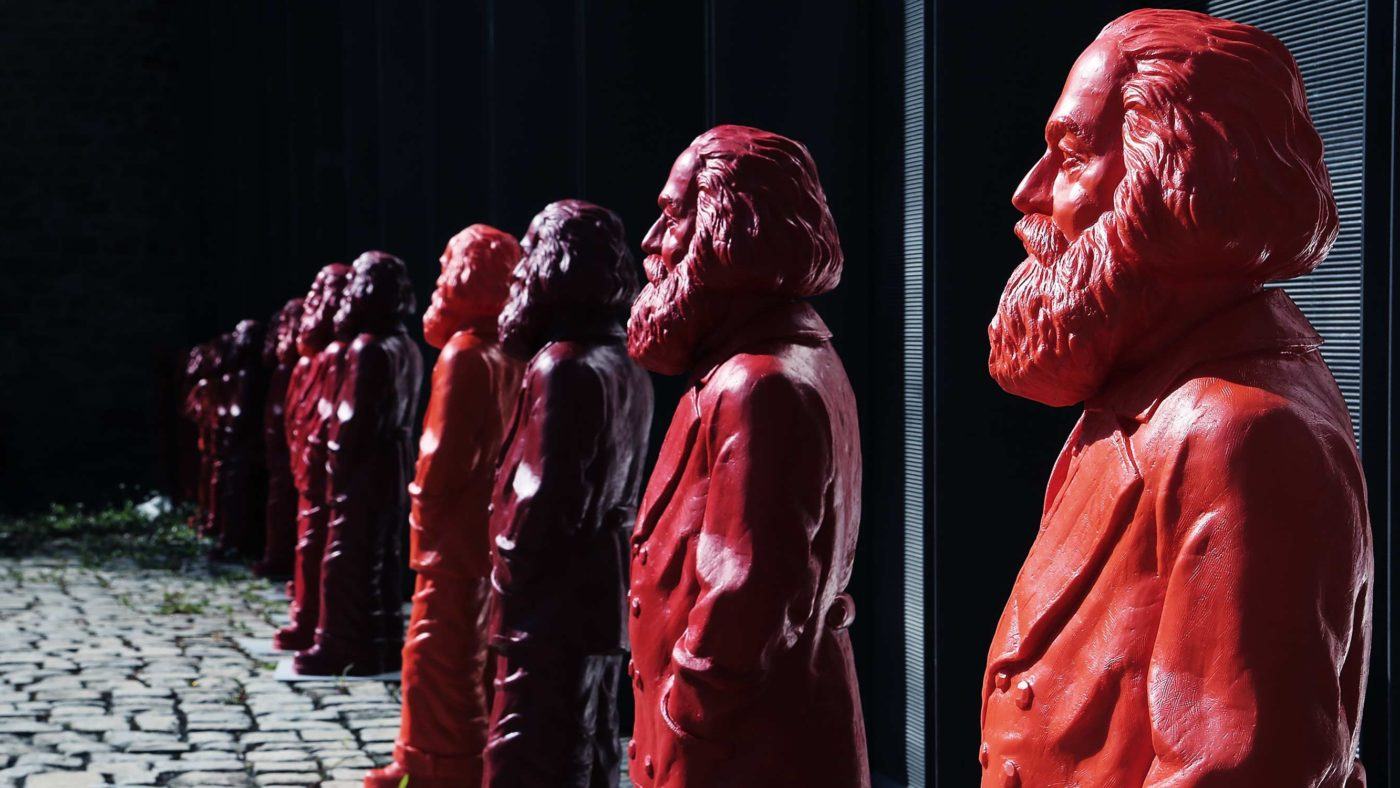Shall I tell you the most extraordinary thing about the clique who have commandeered the Labour Party? It’s not their fantastical spending plans, or their flirtations with the IRA, or their sheer, bumbling ineptitude. It’s something far scarier. Deep down, Jeremy Corbyn and John McDonnell and their Momentum supporters regret the outcome of the Cold War. Even now, when the full horror of his legacy is known, they refuse to give up on Karl Marx.
Just think about what that implies. Marx has a pretty good claim to have caused more suffering than any other human being. No one else murdered so many with his pen. In Marx’s name, men and women were arrested at night and dragged off to torture chambers, shot into mass graves, starved as deliberate policy.
And yet, incredibly, the Labour leader won’t condemn the old monster, his Shadow Chancellor praises him, and his chief spokesman and election strategist both continued to take the Soviet line even after the USSR disintegrated.
Any normal election campaign would have been blown apart when John McDonnell appeared on Andrew Marr’s programme last month. Asked whether he was a Marxist, the Shadow Chancellor made an indistinct noise somewhere between “yes” and “no” and then quickly said, “I believe there’s a lot to learn from reading Kapital, yes of course there is.” Speaking to Labour activists recently, he was a lot less coy, describing himself as an “unapologetic Marxist”.
Let’s just remind ourselves of what Marxists did during the twentieth century. They carried out a mass slaughter a scale never previously known. Perhaps 10 million people died in the Atlantic slave trade. The Nazis murdered 17 million. But the Communists killed 100 million.
How are we to explain that vast number? Aleksander Solzhenitsyn, the dissident Russian novelist, gave a convincing answer. Humanity had known sadists, tyrants and despots before, he wrote, but their cruelty had been limited in scale. Why? “Because they had no ideology. Ideology – that is what gives the evil-doer the necessary steadfastness and determination.”
All Marxist regimes were more or less lethal. Tens of millions died in the Soviet Union and China. There were torture chambers, labour camps and firing squads in every Communist country, from Cuba to Vietnam, from Albania to North Korea.
You didn’t have to be an opponent of the regime to be shot. Your crime might be having the wrong parents, or holding a university degree, or attending church. In Communist Cambodia, wearing glasses was enough to condemn you to death: it was taken as a sign that you spent too much time reading instead of working with your hands.
I’m sure McDonnell would argue that these crimes cannot be blamed on the man in whose name they were committed. And it’s true that Marx himself was dead before the first of his followers seized power 100 years ago.
Although he was an unattractive man, Marx was not a murderer. He was a drunken egoist who neglected his wife and children. He never forgave Britain, the country that had taken him in and given him refuge, for refusing to have a revolution. He was a shameless sponger, living off his friend Friedrich Engels, despite the money coming from Engels’ father’s factory. But, as far as we know, he never killed anyone.
Still, it won’t do to separate his words from the actions they inspired. Marx taught that people were machines, or rather cogs in the great machines that made up the social classes. He believed the ends justified the means. That belief led directly to the gulags.
Uneasily aware of this record, Corbyn, like McDonnell, emphasises that he respects Marx as “a great economist”.
Frankly, that is rather like saying that you admire Hitler as “a great strategist” or Osama Bin Laden as “a great theologian”. Even if they had been these things, it would be an extraordinary thing to say. But they weren’t.
Marx was a hopeless economist. Every prediction he made – every single one – turned out to be false.
Free markets, Marx wrote, would destroy the bourgeoisie, concentrating wealth in the hands of a tiny number of oligarchs. In fact, free markets have enlarged the middle class everywhere they have been allowed to exist.
The revolution, he said, would occur when the working class became sufficiently self-aware, something he expected to happen first in Britain and then in Germany. In fact, as working people in those countries became more educated, they became more attached to private property. The revolutions instead happened, calamitously, in the last places he’d have expected: the agrarian societies of Russia and China.
Capitalism, he believed, was doomed: it would collapse under the weight of its internal contradictions. In fact, when he made that prediction in 1848, markets were already working their magic. During the old cadger’s lifetime, the real income of the average British family increased by an incredible 300 per cent.
Yet Marx’s disciples, like members of some doomsday cult, continue to fit the facts to their opinions. If anything, they have become even more dogmatic since the fall of the Berlin Wall.
How apt, a hundred years after his followers seized power, that Marx should have become the thing he most loathed: the founder of a false religion. And how disturbing that a group of his cultists, led by another bearded prophet, should have captured a major British party.


